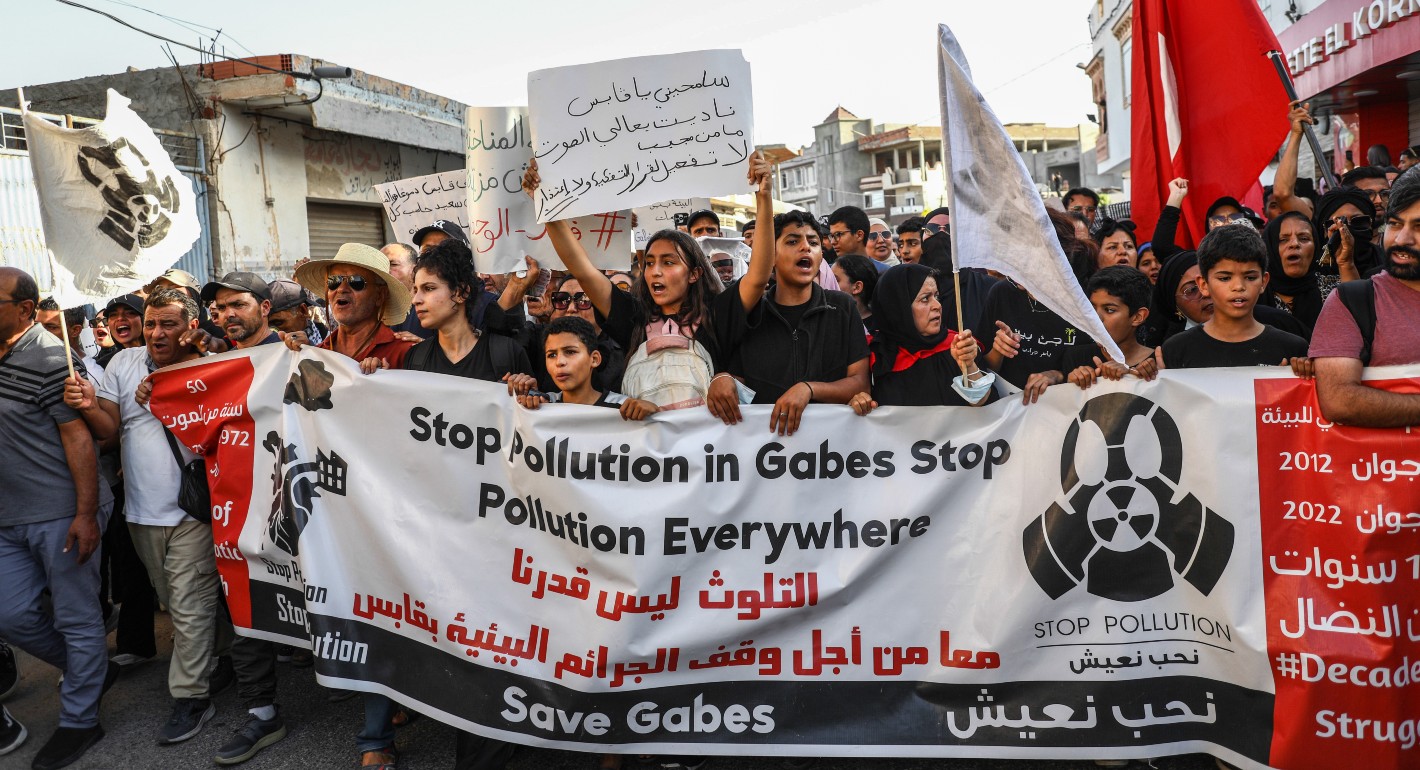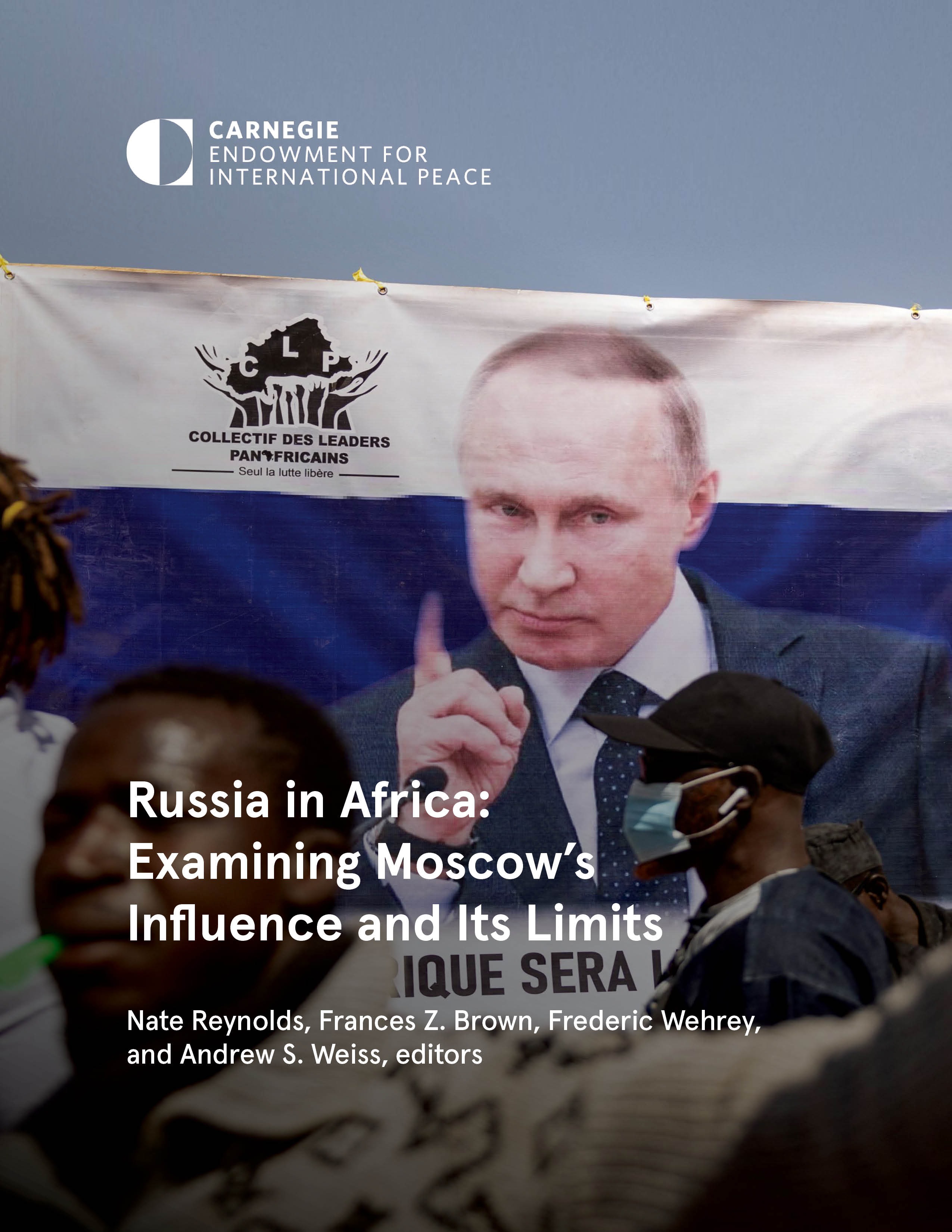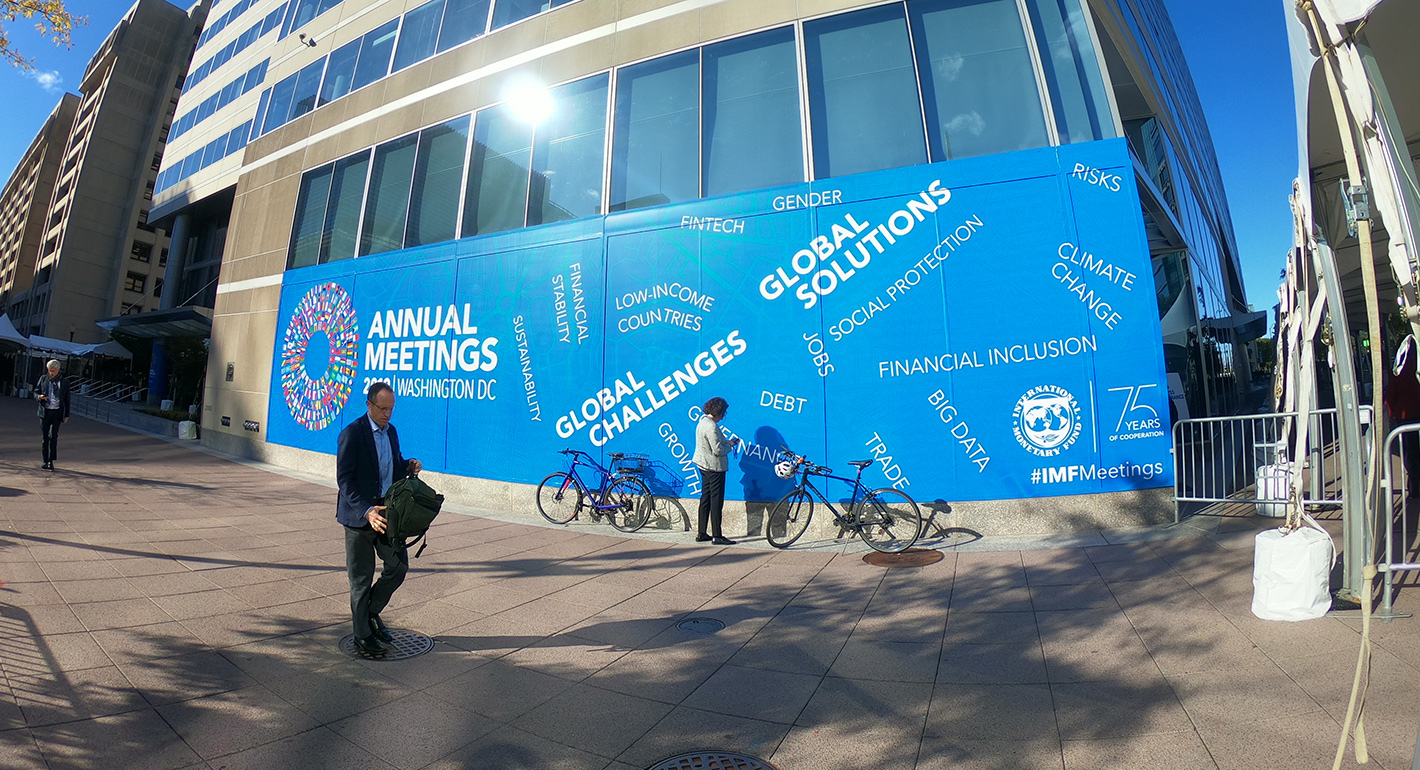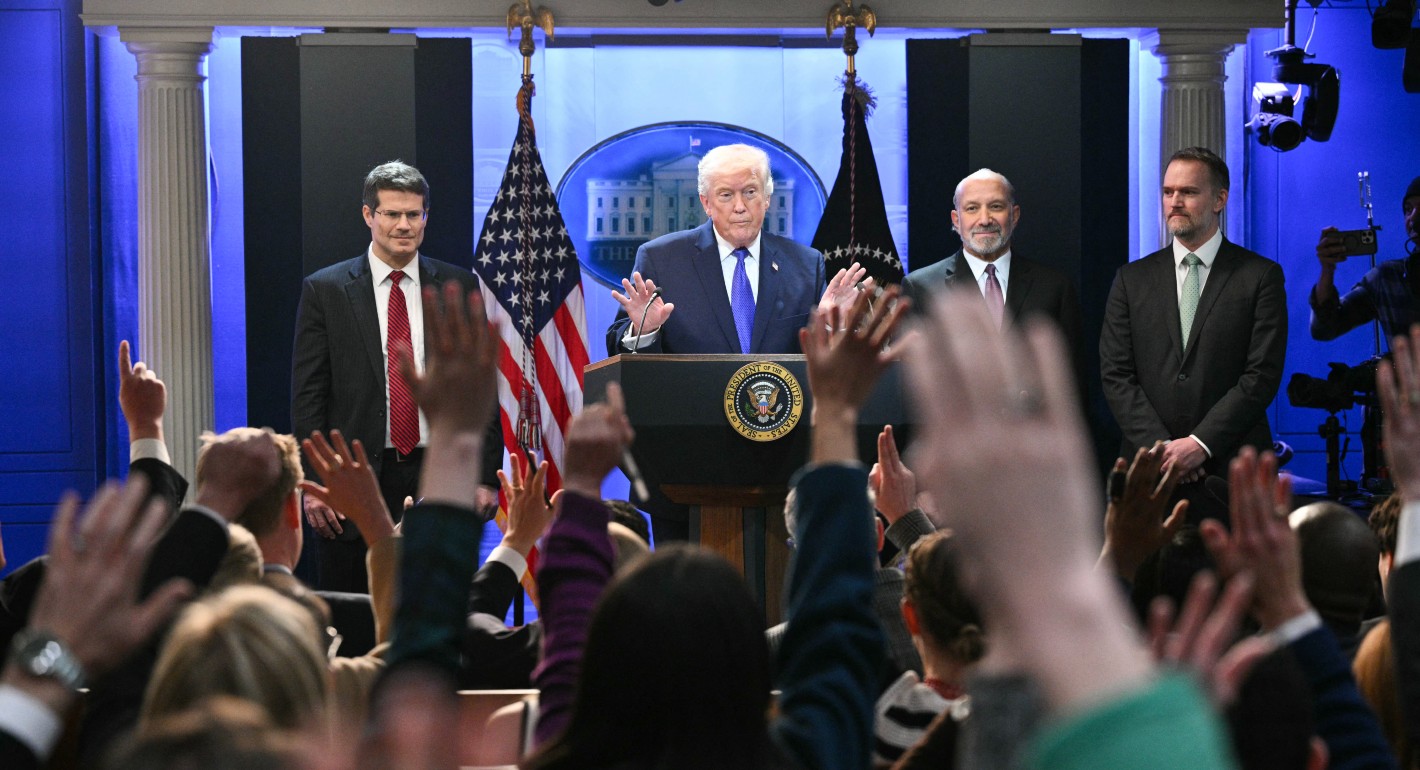Carole Nakhle
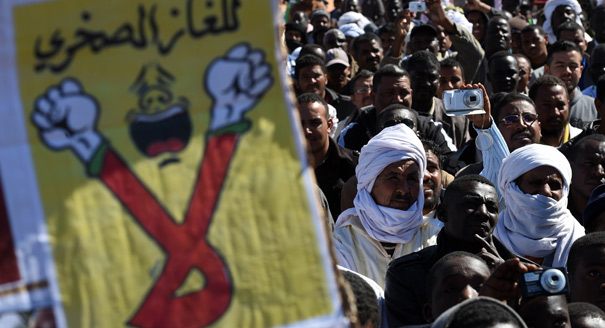
Source: Getty
Algeria’s Shale Gas Experiment
Faced with declining gas production and falling oil prices, Algeria is moving to tap its promising shale resources—but success is not assured.
Algeria took the lead on shale gas exploration in the Arab world, hoping that the successful exploitation of its substantial resource potential would reverse a decline in domestic natural gas production and safeguard the Algerian economy.
Oil and gas are the backbone of the country’s finances, accounting for 62 percent of government revenue and 97 percent of export earnings. But the decreased production and the sharp drop in oil and gas prices that began in late 2014 have hit Algeria hard. As the Algerian prime minister, Abdelmalek Sellal, put it in early 2015, “We are in a state of crisis.”
The government’s 2012 decision to tap the country’s shale resources has been met with protests from critics who fear that the substantial amounts of water needed to access shale gas will decrease water supplies, especially in regions that largely depend on agriculture. Early protests took place erratically across the country and in some European cities, typically timed to coincide with visits by Algeria’s minister of energy and mines, Youcef Yousfi. But the demonstrations have become more frequent and drawn more attention since 2014, especially in the south of the country, where shale exploration has been concentrated. Despite the protests, Algerian officials have vowed to continue with the effort.Oil companies and experts alike acknowledge that production of shale gas in Algeria is a long-term proposition. Many obstacles remain; these are largely institutional and they are the same culprits that have discouraged investment in the conventional oil and gas sector.
Algeria’s declining production illustrates the popular notion that an abundance of resources in the ground does not necessarily translate into efficient oil and gas production. The Algerian government should tackle these root problems first—before putting high hopes on shale—if it wants to improve the dull outlook of its oil and gas industry.
An Energy Paradox
Algeria is oil and gas rich, both in conventional and unconventional—mainly shale—resources. But despite this natural wealth, the country’s oil and gas production peaked in 2007 and 2005 respectively.
Algeria holds an estimated 12.2 billion barrels of conventional proved oil reserves—the third-largest reserves in Africa, behind Libya and Nigeria. With 4.5 trillion cubic meters (about 160 trillion cubic feet) of proved conventional natural gas reserves, Algeria ranks tenth in the world and second in Africa after Nigeria.
Shale figures are highly uncertain because exploration is still at an early stage. But the U.S. Energy Information Administration (EIA) estimates that Algeria holds almost 20 trillion cubic meters (707 trillion cubic feet) and 5.7 billion barrels of technically recoverable shale gas and oil, respectively, representing a significant potential new resource for a country eager to diversify its energy sector.
Meanwhile, as Algeria has struggled with declining oil and gas production, domestic demand has increased rapidly, largely fueled by generous subsidies. The cost of subsidies for hydrocarbon products amounted to an estimated $22.2 billion, or 10.9 percent of gross domestic product, in 2012, according to the International Monetary Fund (IMF).
In a country that depends primarily on oil and gas for its own energy needs, the immediate consequence has been a shrinking export capacity. Revenues from hydrocarbon exports decreased from $70.6 billion in 2012 to $65.3 billion in 2013, despite the fact that oil prices were then hovering above $100 a barrel. Because most of Algeria’s gas is sold under oil-indexed contracts, its price has closely tracked the price of oil.
A Challenging Investment Climate
Despite its considerable hydrocarbon potential, Algeria has not been an easy place for international investment in conventional oil and gas.
This challenging environment has significantly curtailed the industry and weakened the outlook for future production. Low oil and gas prices are further adding to the challenge, resulting in declining earnings and spending on the part of energy companies.
Irrespective of the price, however, the outlook for shale will not be any different unless the government shows dedication to improving Algeria’s business climate.
In its Doing Business 2015 report, the World Bank ranked Algeria poorly at 154 out of 189 countries, a worse performance than in 2014, when it ranked 147. In the oil and gas sector in particular, the EIA cites several main factors behind the country’s disappointing production performance, including repeated project delays caused by slow government approval, difficulties attracting investment partners, infrastructure gaps, and technical problems. An unstable legislative and regulatory environment, protectionist policies, a tough tax regime, corruption, and high security risks could be added to the list.
In 2005, for instance, the government introduced a new hydrocarbon law to reduce the monopoly of Sonatrach, Algeria’s national oil company. The 2005 law was, however, heavily criticized by the Algerian public and opposition parties, and it was drastically amended a year later to safeguard the dominance of the state-owned company. The revised 2006 law not only introduced a tax of up to 50 percent on oil companies when oil prices top $30 per barrel but also fixed Sonatrach’s participation at a minimum of 51 percent in various projects. Additional rules were enacted in 2009 and 2010 that restricted imports and imposed further curbs on foreign investment.
Algeria also has one of the toughest petroleum taxation systems in the world. According to the consultancy firm Wood Mackenzie, the rationale behind Algeria’s stringent contractual terms and Sonatrach’s imperious attitude toward international oil companies (IOCs) is difficult to understand given the poor state of the country’s hydrocarbons sector. In 2010, for example, a corruption scandal led to the imprisonment of several Sonatrach executives and the dismissal of the then minister of energy, Chakib Khelil.
The security situation has also been discouraging for potential investors. Algeria has a legacy of violence. In 1992, the country plunged into a brutal civil war between the army and Islamist groups that lasted more than ten years. Occasional clashes with militias have occurred since the war’s end. A militant Islamist attack on the In Amenas gas complex in January 2013 and the more recent beheading of a French tourist in September 2014 reminded the international community of the North African nation’s political fragility and its tenuous security.
The risk for the IOCs of greater involvement in Algeria is therefore too high compared to the reward they could achieve. It is thus not surprising that past auctions have revealed limited international interest in bidding for oil and gas exploration rights. Algeria’s 2011 licensing round resulted in only two blocks of territory out of ten on offer being awarded; in 2009, just three of eight blocks were awarded, and, in 2008, just four of sixteen.
Renewed Efforts to Attract Investors
Hoping to rescue the economy by stimulating interest in new energy developments, especially in shale gas, the Algerian government moved again in 2013 to revise its hydrocarbon law.
Among the main changes introduced, the government provided additional tax incentives to encourage activities related to shale and other unconventional oil and gas, as well as to those involving small fields; deposits in underexplored areas, including offshore fields; and fields with complex geology and/or those lacking infrastructure.
The revisions also based some taxes on profit, rather than revenue, thereby taking costs, and not just production, into consideration when computing the tax base—an approach highly valued by investors. In addition, the government relaxed certain conditions for exploration, research, and production of conventional oil and gas and introduced provisions to support research and production of unconventional resources. The amendments also allowed for a longer license period to carry out exploration for unconventional resources (eleven years compared to seven for conventional resources) and a longer production period (thirty to forty years compared to twenty-five to thirty for conventional oil and gas).
As of early 2015, the legislative changes had produced a positive, albeit still very limited, impact on the oil and gas sector. In a 2014 round of bidding, seventeen of the 31 licenses on offer were for unconventional prospects, the first time that they were included in a bidding round. Four contracts were awarded, including a license for shale exploration that was won by Norwegian Statoil together with Royal Dutch Shell, an Anglo-Dutch multinational. In addition, two licenses went to a team of Italian Enel and Dragon Oil—which is based in the United Arab Emirates and was the only new entrant into Algeria—and another was awarded to Spanish Repsol and Shell. Although the outcome of the licensing round was described as disappointing and worrying, the participation of oil majors such as Shell and Statoil is considered a boost that could bring additional valuable capital and expertise.
Several IOCs, including Eni, Shell, and Talisman Energy, already hold Algerian exploration licenses for shale, as they try to gain the first mover’s advantage from early access. Statoil described its 2014 acquisition of a shale license as “an opportunity to test a potentially large shale resource play,” adding that “the large shale potential in Algeria may become an increasingly important component of the country’s gas exports to Europe in the future.”
Remaining Obstacles to Shale Production
Despite such cautious optimism on the part of some international investors, shale production is not expected to start in Algeria anytime soon.
There are fundamental reasons why shale production has, so far, materialized only in the United States, despite the fact that the country does not sit on the largest shale resources. U.S. activity was spurred by a combination of aboveground factors, including high oil prices, advances in technology, private ownership of underground mineral rights, a well-established service industry and infrastructure, plentiful water, competitive tax terms, and an overall investment-friendly environment. Because other countries do not possess a critical mass of these qualities, experts doubt that the U.S. experience will soon be replicated elsewhere.
And indeed in Algeria, most of these requirements are still missing, making rapid growth in shale production unlikely in the near term. The main obstacles facing shale investment in Algeria, according to the Middle East Economic Survey, include: the remote location of the country’s shale acreage, the lack of infrastructure, limited water availability, and the need for more rigs because shale wells deplete more quickly than their conventional counterparts. Importantly, shale production is also likely to be slowed by the same factors that have traditionally hindered investment in conventional oil and gas in Algeria.
Furthermore, the Algerian government seems to have underestimated its people’s reaction to shale activities. Some international experts also miscalculated, arguing that “the oil and gas industry has a long history in Algeria, and little opposition is expected.” They were wrong. As one slogan used by the protesters puts it: “The people declared a moratorium on shale gas.”
Protesters fear the impact of shale activities on water supplies and the environment because hydraulic fracturing, or fracking, the drilling technology used to extract shale gas, requires the use of large volumes of water, which is scarce in Algeria. More than 95 percent of the country’s shale plays are covered by the Sahara Desert, according to the World Resources Institute.
Root Problems Must Be Addressed
Algeria is trying to assess and confirm its shale potential, hoping that in the coming years it will be able to reap the various benefits that an additional source of domestic hydrocarbon supply can bring to an economy that is heavily dependent on oil and gas revenues.
Most international studies, however, agree that the successful exploitation of shale resources outside the United States will be very limited. Algeria is no exception.
The many remaining obstacles are not specifically related to shale; they have also discouraged investment in the country’s long-established conventional oil and gas reserves. Even if technical obstacles are overcome and opposition is silenced, Algeria’s root problems reside in the government’s inability to enact drastic and robust reforms that will help attract international capital. As the IMF said in 2014, “Measures are needed to enhance the business climate, attract foreign investment, and improve Algeria’s integration into the world economy.”
Much still needs to be done for the government to change the perception that Algeria is a difficult place to do business. But without that, domestic oil and gas production will continue to suffer—with or without shale.
About the Author
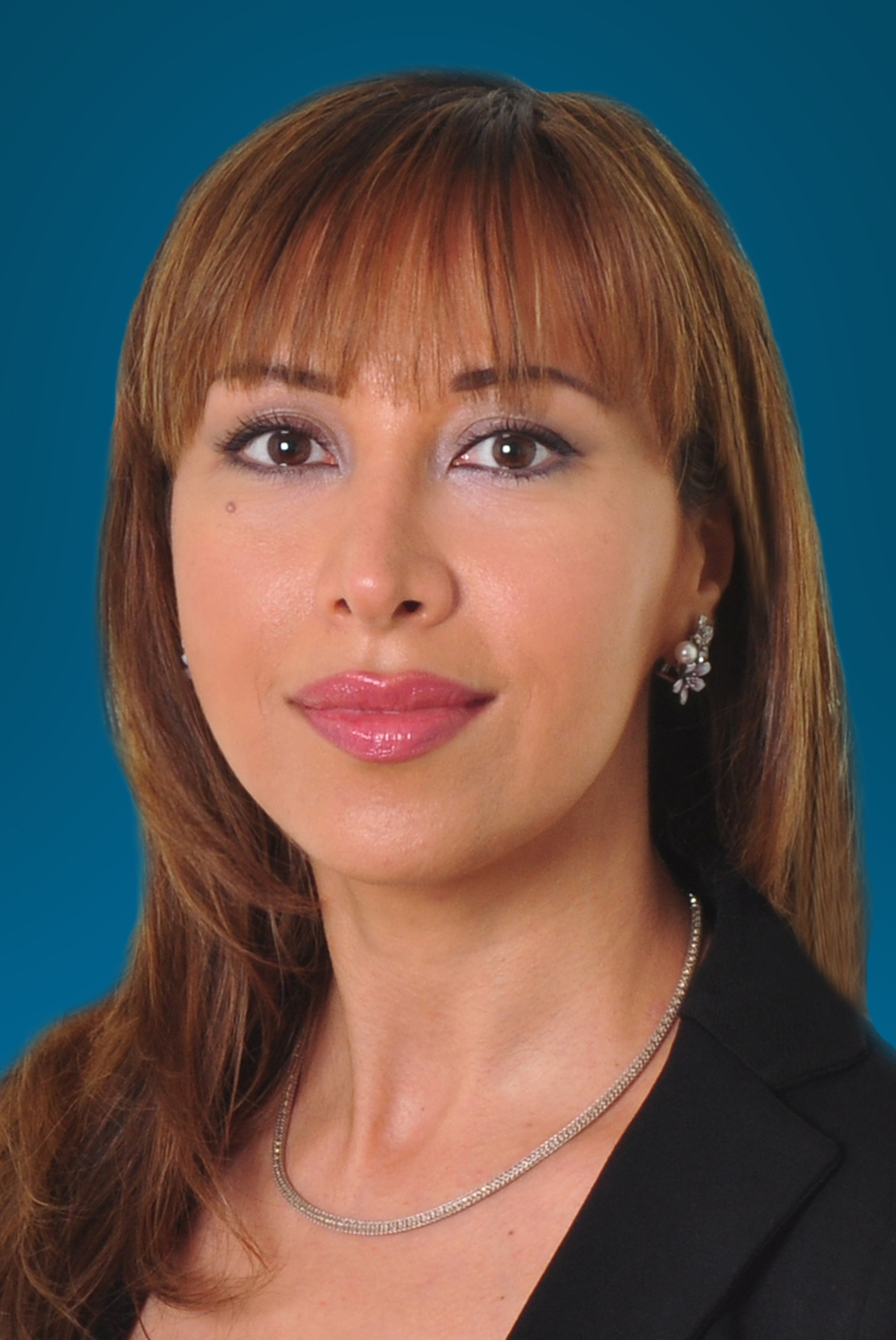
Former Nonresident Scholar, Middle East Center
Nakhle was a nonresident scholar at Carnegie Middle East Center, specializing in international petroleum contracts and fiscal regimes for the oil and gas industry, world oil and gas market developments, energy policy, and oil and gas revenue management.
- Nuclear Energy’s Future in the Middle East and North AfricaArticle
- ISIL Sells Its Oil, But Who Is Buying It?In The Media
Carole Nakhle
Recent Work
Carnegie does not take institutional positions on public policy issues; the views represented herein are those of the author(s) and do not necessarily reflect the views of Carnegie, its staff, or its trustees.
More Work from Carnegie Endowment for International Peace
- Civil Society Restrictions in North Africa: The Impact on Climate-Focused Civil Society OrganizationsArticle
For climate-focused civil society in countries like Morocco, Algeria, and Tunisia to be most effective, organizations should work together to develop networks that extend their reach beyond their local area and connect across borders to share best practices and amplify each other’s work.
Sarah Yerkes
- When Football Is More Than FootballCommentary
The recent African Cup of Nations tournament in Morocco touched on issues that largely transcended the sport.
Issam Kayssi, Yasmine Zarhloule
- Russia in Africa: Examining Moscow’s Influence and Its LimitsResearch
As Moscow looks for opportunities to build inroads on the continent, governments in West and Southern Africa are identifying new ways to promote their goals—and facing new risks.
- +1
Nate Reynolds, ed., Frances Z. Brown, ed., Frederic Wehrey, ed., …
- Getting Debt Sustainability Analysis Right: Eight Reforms for the Framework for Low-Income CountriesPaper
The pace of change in the global economy suggests that the IMF and World Bank could be ambitious as they review their debt sustainability framework.
C. Randall Henning
- How Middle Powers Are Responding to Trump’s Tariff ShiftsCommentary
Despite considerable challenges, the CPTPP countries and the EU recognize the need for collective action.
Barbara Weisel
